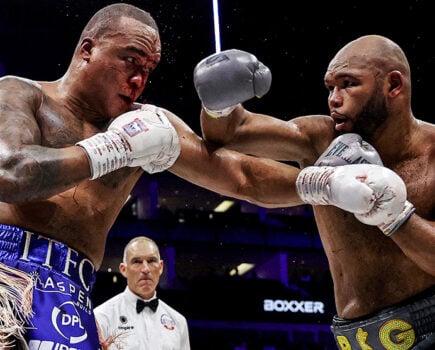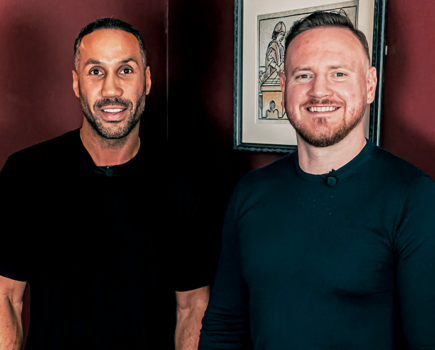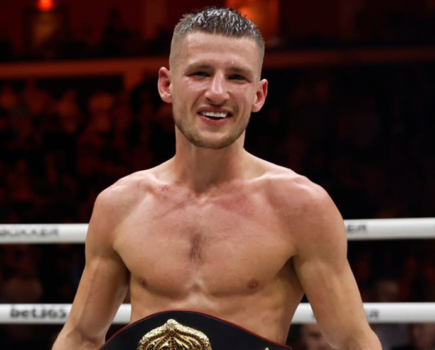By Elliot Worsell
WE are all susceptible to it from time to time; just saying stuff, that is. Saying stuff that in the moment feels right, or wise, or the right thing to say, until, in the aftermath, it is reframed and all of a sudden seems wrong, out of place; the result of cliché rather than considered thought.
Perhaps, for Shawn Porter, this realisation arrived last week, when, working for ProBox TV, the former welterweight champion suggested Japan’s Naoya Inoue must prove something to him – Shawn Porter – and other Americans by fighting (again) in America. This view, as expected and maybe hoped, caused quite the stir online, with many claiming Inoue’s justification for not fighting in America can be found in the fact his next fight, a super-bantamweight title defence against Luis Nery on May 6, is on course to sell out Japan’s famous Tokyo Dome, capacity: 55,000.
“Everybody’s looking for that next star,” Porter said when asked about Inoue, 26-0 (23). “Everybody’s talking about how much money you can make and how many fans you have. We really don’t know what Inoue’s goals are. Is his goal to be the star in boxing? If his goal is to be the star in boxing, you’ve got to come to the United States. You’ve got to cross those seas and knock out some Americans to make these other Americans take notice of who you are and what you’re doing. There’s a lot of people in the boxing world that respect Inoue and what he’s done but if you’re someone like me, I’m saying, ‘Let’s get him out of his own backyard; get him a little uncomfortable and see how he handles it.’”
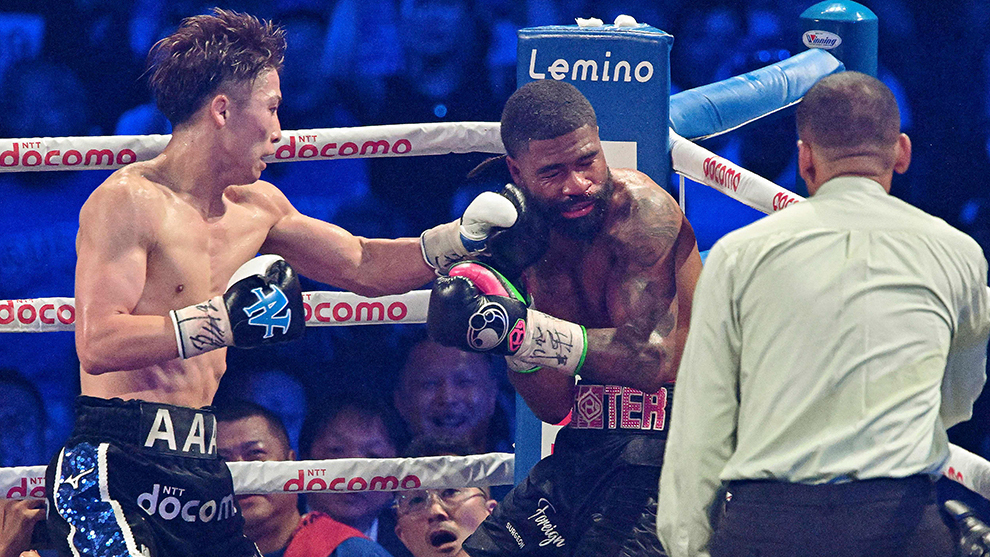
Inoue stops Stephen Fulton (Getty Images)
On the face of it there’s nothing egregious about what Porter said, nor is he wrong for wanting to see more of Inoue on American soil (Inoue has so far fought there on three occasions) and for other Americans to become as excited by the super-bantamweight king as Porter professes to be. However, the issue for Porter, it would seem, stems from how the line, “Fighter A must come to America to really make it,” has over time descended into cliché and become something boxing fans, as well as pundits and former fighters, will say just because it either sounds right or someone said something similar about some other fighter many years ago.
It is true, of course, that there was a period when America really was the Promised Land for professional boxers; the home of the heavyweights and the dominating nation on most mythical pound-for-pound lists. Yet that period, like those heavyweights, is no more and now the landscape has shifted, so much so that fighters like Inoue, plus many from Great Britain (interestingly, heavyweights), have in recent times preferred to stay at home and fill out stadiums rather than travel to America.
That was certainly a trend a few years back, when big stadium fights were regularly taking place in the UK, and it will likely remain the case for as long as America struggles to find heavyweights to return the belts – and the sport – to their turf. Even with the sudden and growing influence of Saudi Arabia, there is still a hunger for fighters to compete in stadium fights at home, whether they are British and fighting in Britain or, as with Inoue, Japanese and fighting in Japan.
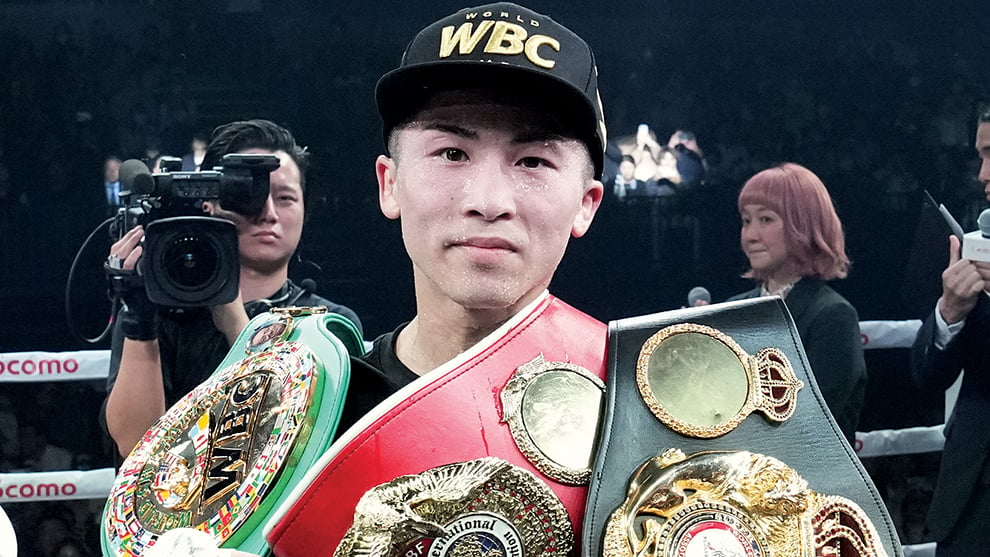
Naoya Inoue with some of his belts
Frankly, where Inoue is concerned, the idea of fighting at home when competing in the lower weight classes is nothing new. In fact, just as the heavyweight division has for so long been synonymous with America, the same could be said for Asia and the smaller men; for it is there, in Asia, many of the world’s best were both born and fought the majority of their career. Indeed, the prospect of “making it in America”, as if these are not boxers but pop stars groomed by Simon Cowell, has always been secondary in the minds of smaller fighters. Aside from the likes of Naseem Hamed and Manny Pacquiao, it is hard to think of too many who have explored this as an option and capitalised on it fully. It is hard, after all, to get the right crossover fights – compelling ones; ones appealing to more than just hardcore fans – in the lower weight classes. These divisions, typically, are known more for distance fights than one-shot drama, which is hardly ideal for sports bars and casinos composed predominantly of casual fans. What is more, they tend to feature fighters whose names are difficult to either spell or pronounce and whose lack of connection to the USA makes the thought of embracing them as one of their own a tough one for most Americans to wrap their heads around.
Pacquiao, of course, was an exception, and Hamed, although not necessarily loved, was charismatic and divisive enough to at least make people care. They were also, let’s not forget, both packing abnormal, fight-ending power, the kind more associated with middleweights than men weighing no more than nine stone.
Similarly blessed is Inoue, granted. Yet there are differences, too. He is, for one, not an English speaker like Hamed, nor, at 31, is he a young fighter with time and room to develop into an international star. Instead, the “Monster” is a star only in the eyes of the purist, which is fine, and draws massive crowds in his homeland because there, in his homeland, he finds a greater concentration of both countrymen and purists; people who understand not only the talents of Naoya Inoue but, having watched so many of them over the years, the talents of boxers whose total weight is that of an American heavyweight’s torso.




